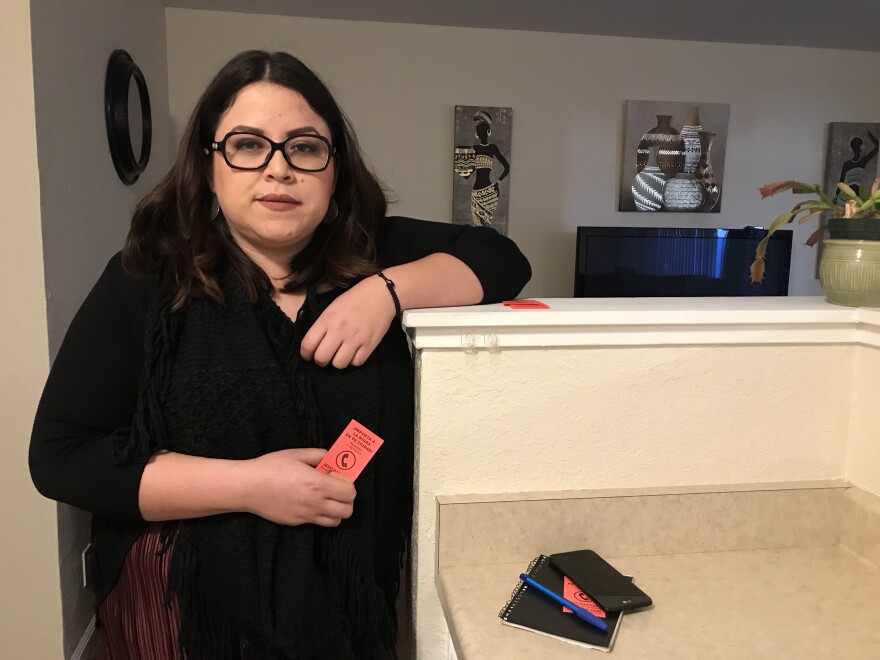Rumors of immigration raids coming to cities in Northern California have put immigrant communities on edge and a group of local volunteers on standby. They’ve been training to respond to ICE raids.
When Immigration and Customs Enforcement, or ICE, agents arrest undocumented immigrants, the raids can happen quickly and early in the morning. Adriana Melgoza is ready for that. At her apartment in Castroville, she has her go-kit neatly stacked on the kitchen counter. It includes a spare cell phone for taking videos and pictures, a notebook and a pen.
“I make sure it’s always in a place where it’s accessible and I’m not looking for it,” Melgoza says.
Melgoza is a member of the Monterey County Rapid Response Network. It’s a group of about 150 locals who are trained to observe and document ICE raids. Their goal is to act as eyewitnesses and not intervene.
The rapid responders pass along their notes to lawyers representing those facing deportation. The information could be useful in a legal defense. For example, the rapid responders look out to see whether detainees sign any documents.
“They have the right to speak to their lawyer without signing any document. Usually what they’re signing is voluntary deportation. And that is very disturbing because then it violates a judicial system,” Melgoza says.
ICE Spokesman James Schwab disputes that ICE agents violate people’s rights.
“Aliens arrested by U.S. Immigration and Customs Enforcement (ICE) for violations of law as part of the agency’s targeted enforcement actions receive all due process afforded to them under the law,” Schwab wrote in an email. “ICE officers conduct themselves in accordance with the authorities conveyed to them under federal law and the Constitution.”
Melgoza says the duties of rapid responders don’t end after a raid. They also help any family members left behind, like children who may have witnessed the raid.
“So we try to connect them to resources, local resources. Many of these children are citizens and so they have the right to access all of these services. Yet when they are left behind, there’s no one to tell them here is where you can go,” says Melgoza.
There are similar rapid response networks all throughout Northern California, including in Santa Cruz County.


